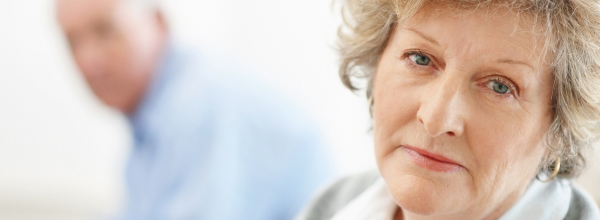Good health in old age

Not only are we living longer than ever, more and more of us are staying healthy into old age, however, some medical conditions do get more common as you reach your fifties and sixties. Here are a few tips to help you tease out the serious from the easily solved.
Polymyalgia Rheumatica
We all get the odd ache and pain, but Polymyalgia Rheumatica, or PMR, is more than that. It usually causes muscle aches in the shoulders and upper arms, which are there all the time. It’s diagnosed with a simple blood test, called an ESR. Once it’s diagnosed, it’s treated with steroid tablets, which should relieve your symptoms in days. You’ll need to take them for a few months, but you should be able to taper off your dose (under your doctor’s instructions) as your condition improves.Bloating
As the years go by and we get a little less energetic, it’s not uncommon to put on a few inches around the tummy. This can happen because you’ve put on weight generally, or because your muscle tone isn’t what it was. For some women, going through the menopause can trigger a redistribution of fat.Bloating is also a common symptom of digestive problems, such as irritable bowel syndrome, or IBS. IBS often causes tummy pain (classically made better by opening your bowels). You may be constipated or have diarrhoea, or even alternate between the two. However, if you develop any of these symptoms for the first time and they last for more than a few days, you should always see your GP. That’s because some more serious conditions, including cancer of the ovary, can cause similar problems.
Change in bowel habit
Constipation becomes more common as you get older – but fortunately, it’s rarely due to a serious underlying cause. Common causes include:- being less physically active
- not eating enough fibre (fruit, veg, pulses and beans, wholemeal foods etc)
- not drinking enough fluid (this is especially common in hot weather as you get older)
A change in bowel habit towards looser stools needs more urgent action. That’s because it can be a symptom of bowel cancer – especially if you have other symptoms like dark blood in the stool, weight loss or loss of appetite. Fortunately, although you’ll probably need to have it investigated, most people have a much less worrying cause. But if you have looser stools for more than a couple of weeks, do see your GP.
Ankle swelling
Ankles not quite as slim as they were? Swollen ankles are a common problem not only in pregnancy, but later in life as well. There are several reasons, for this you don’t need to worry about, including:- varicose veins
- hot weather
- not being as active as you used to be
- some tablets (especially a group of medicines for high blood pressure called the calcium channel blockers – the most common is amlodipine)
It’s worth getting swollen ankles checked out with your GP. If no serious cause is found, staying active, exercising your calves regularly and keeping your legs up when you’re resting can all help. Ideally, lie on the sofa and put your legs up over one of the arms, so your feet are above the level of your heart.

No comments: